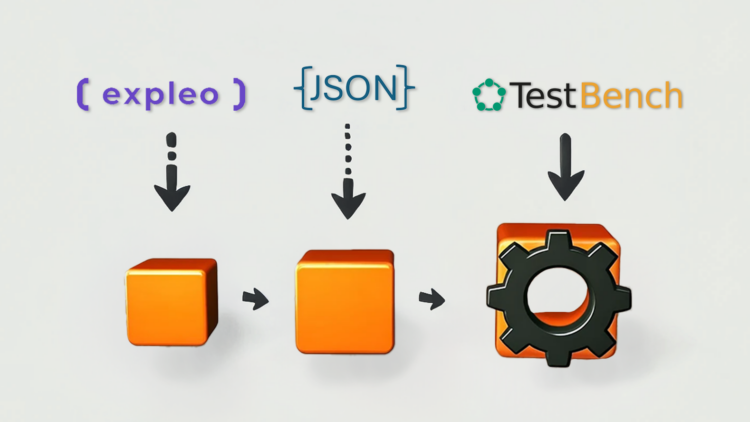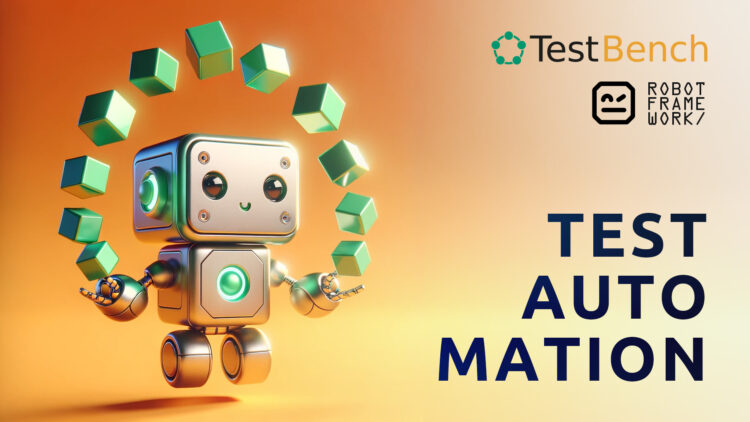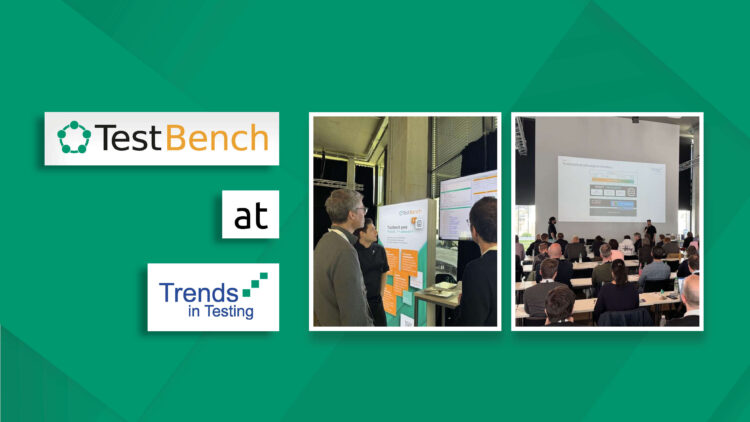
Trends in Testing 2025 – How TestBench supports modern test processes
Test trends 2025: integration, collaboration and artificial intelligence. At the Trends in Testing roadshow, we showed how TestBench supports modern test processes - in a practical, integrated and intelligent way.
The trends in software testing 2025 show: The demands on testing processes are increasing – in the direction of greater tool integration, closer collaboration between specialist testers and automation experts and the targeted use of artificial intelligence to support everyday testing.
These topics were also the focus of this year’s imbus roadshow “Trends in Testing”. Under the title “Live cooking – AI-supported test automation in practice”, we showed how such developments can be implemented in concrete scenarios with TestBench and Robot Framework. In a practical showcase, we were able to present approaches – such as AI-supported evaluation of test results or intelligent support for test case creation.
Integration as the key: TestBench meets Visual Studio Code
A recurring topic in current discussions is the integration of tools along the test chain. Particularly in the area of test automation, there are often media breaks between test management, specification and automated execution.
One solution is the close integration of TestBench and Visual Studio Code – with the aim of picking up test automation engineers directly where they work on a daily basis. The integration of Visual Studio Code with TestBench shows how a continuous connection between specification and automation can be efficiently designed:
- The test topic tree from TestBench can be displayed directly in Visual Studio Code – including test cases and associated keywords.
- Robot Framework tests can be generated directly from the IDE based on TestBench specifications.
- Execution results of automated tests can be transferred back to TestBench.
- The keywords maintained in TestBench are directly available in the development environment.
- Keywords can be adapted in the development environment and synchronized with TestBench.
This integration enables a continuous process from technical test design to implementation – and at the same time promotes collaboration within the team. This means that the test specification is almost simultaneously the implementation of the test automation.
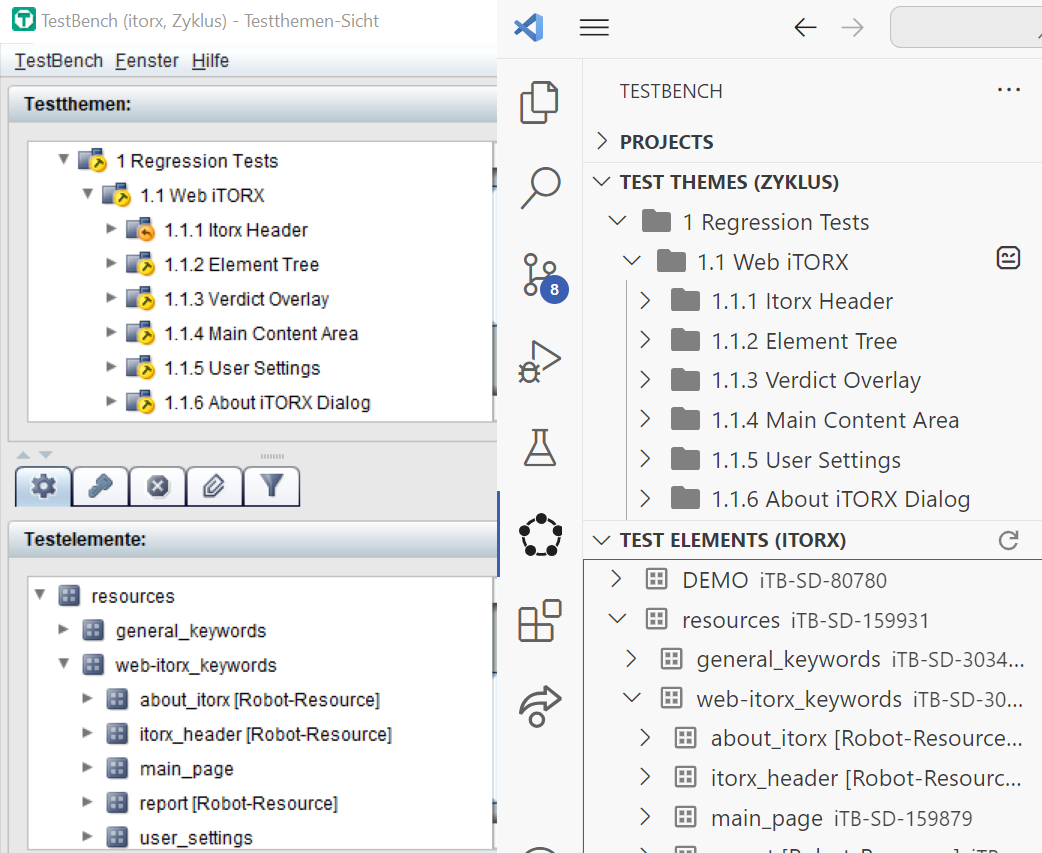
Artificial intelligence in everyday testing – potentials and prototypes
Artificial intelligence is now more than just a trendy topic. It offers concrete support in testing – especially where manual tasks take up a lot of time. Here, too, we have developed various AI use cases within TestBench that improve the interaction between technical expertise and technology:
1. Making error descriptions understandable
Automated tests often deliver error messages that are difficult to interpret without a deeper technical understanding. AI can be used to translate these messages into a language that is understandable for specialists – without technical detours.
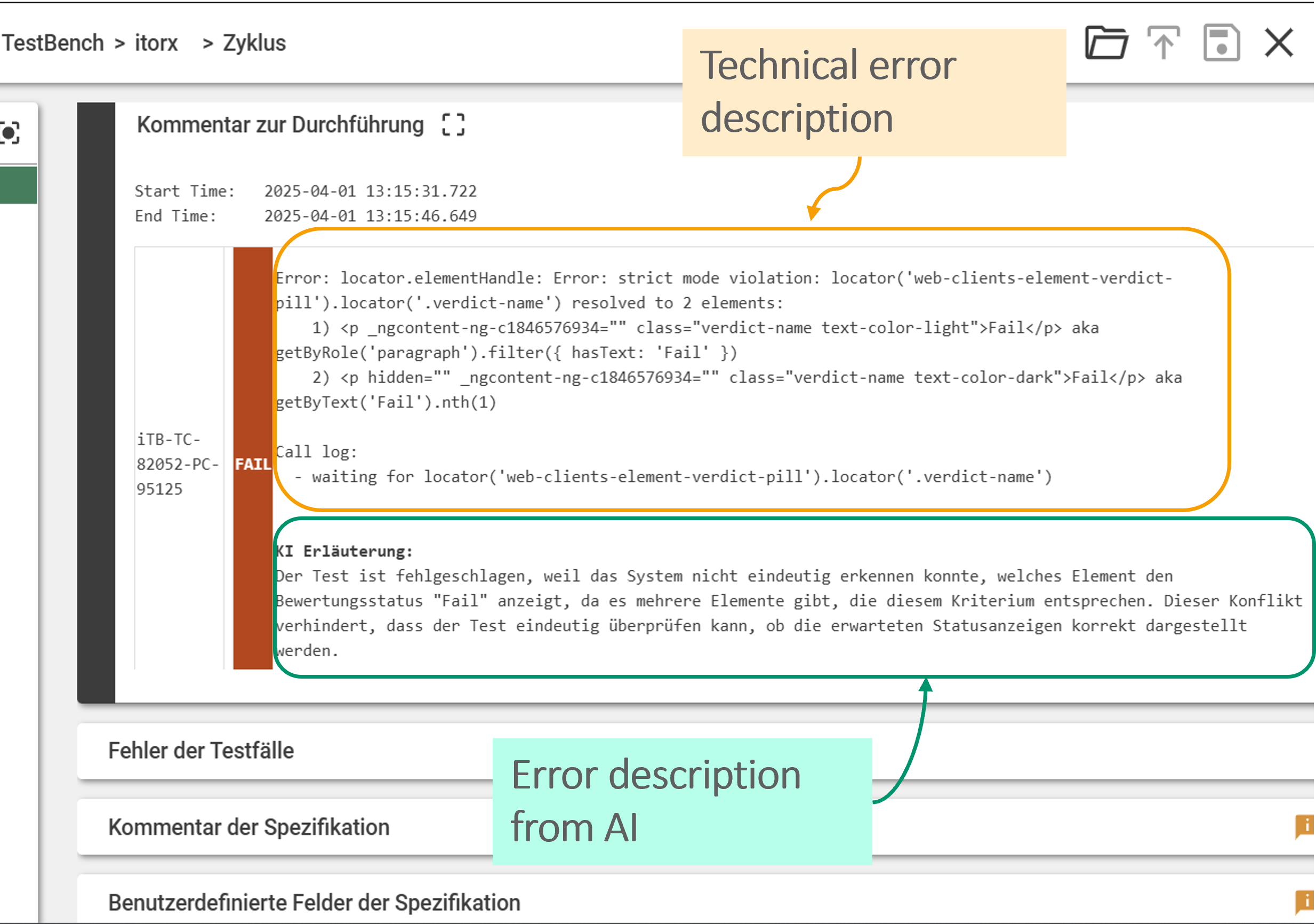
2. Review of test specifications
Standardized rules for test specifications promote quality. AI can be used to carry out an automated check for defined criteria, e.g:
- Each test case contains at least one test step.
- Keywords are consistently formulated in the imperative.
Based on these criteria, AI can also help to identify multiple keywords with similar meanings – with the aim of reducing redundancies and improving the reusability of test modules.
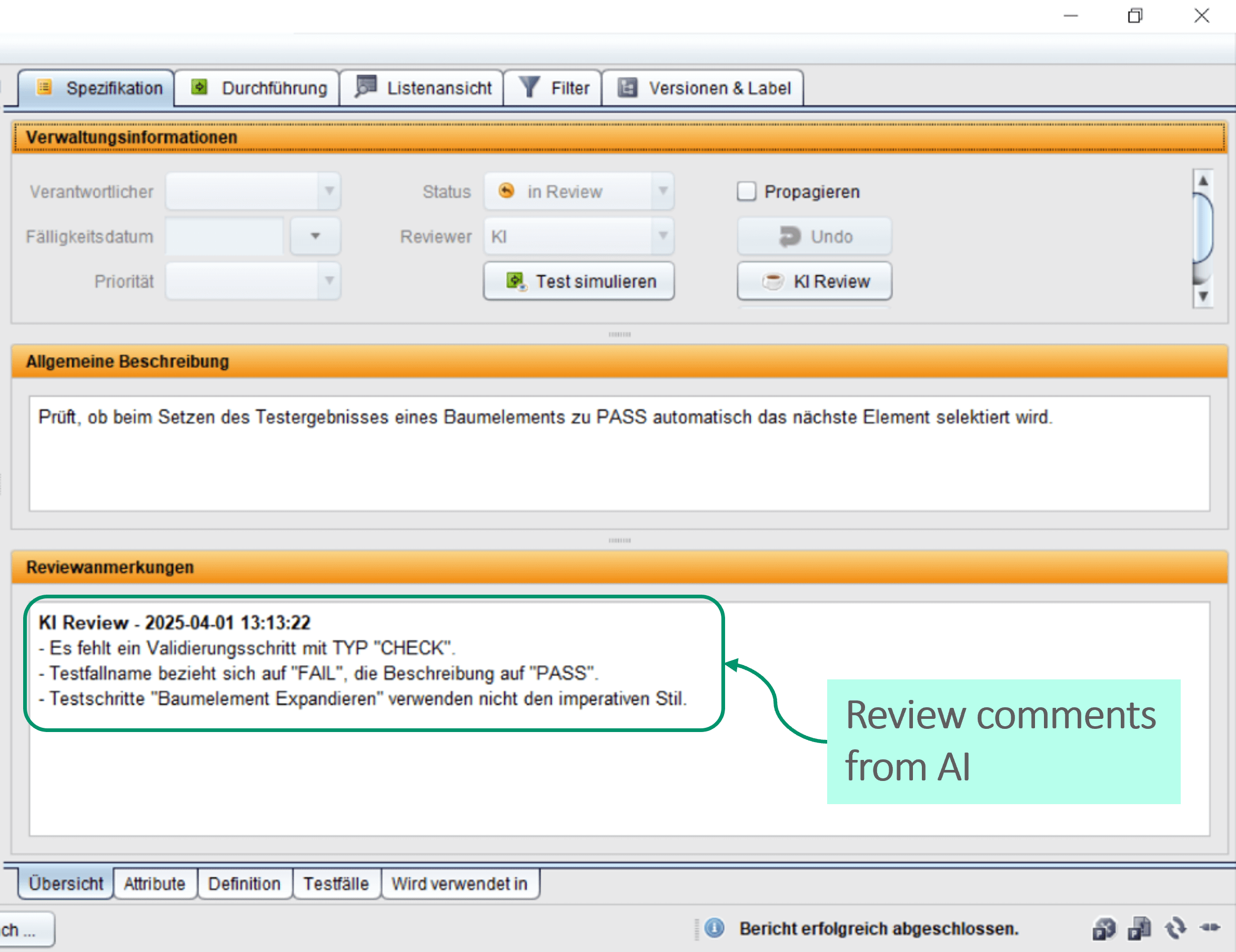
3. Automatically generate keyword documentation
The development of keywords is often creative and technically demanding – their documentation, on the other hand, is often neglected. The first AI-supported prototypes show how a description can be generated automatically based on the keyword structure and its context of use. This saves time and ensures better comprehensibility within the team.
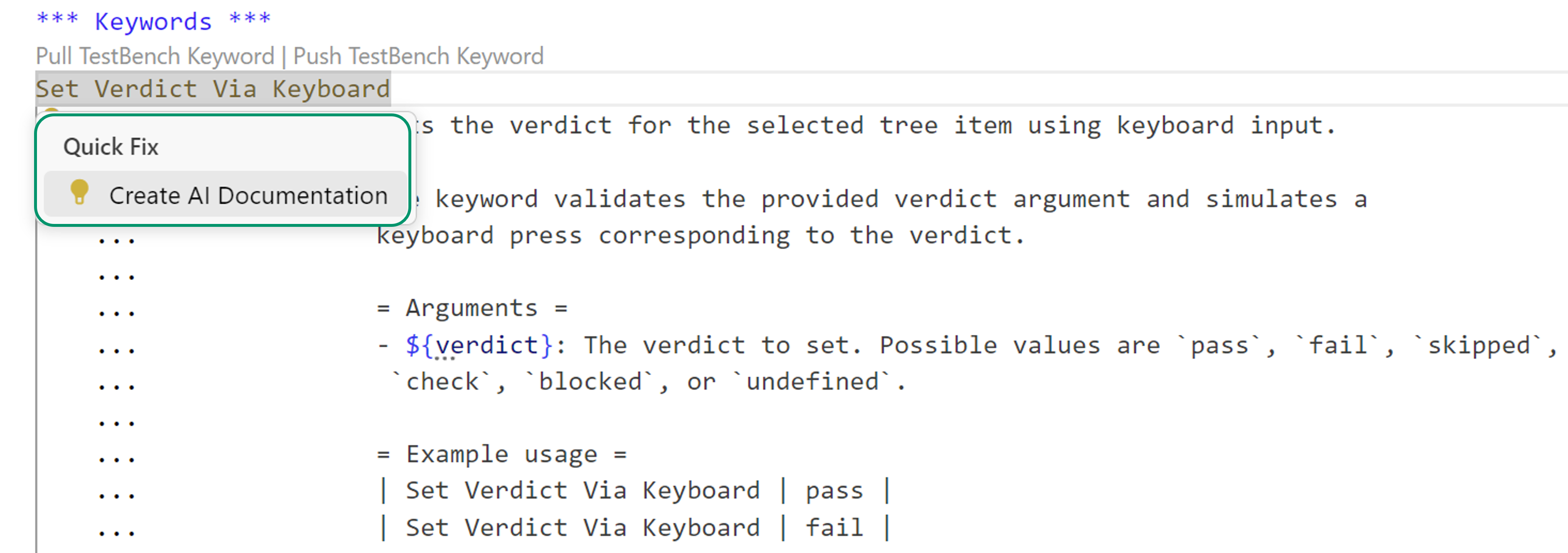
Conclusion: Recognizing trends – shaping potential
The discussions and application examples in the context of “Trends in Testing” have shown: The combination of functional specification, technical implementation and intelligent support is the key to future-proof testing.
With TestBench, we are continuously working on strengthening this connection – be it through integrative tools such as the Visual Studio Code Extension or through the targeted use of AI. Many of these approaches have already been implemented as prototypes – and offer a glimpse today of what will be possible in the testing of tomorrow.
Design your test strategy of tomorrow – today.
Contact us for a personal consultation or a live demo.
